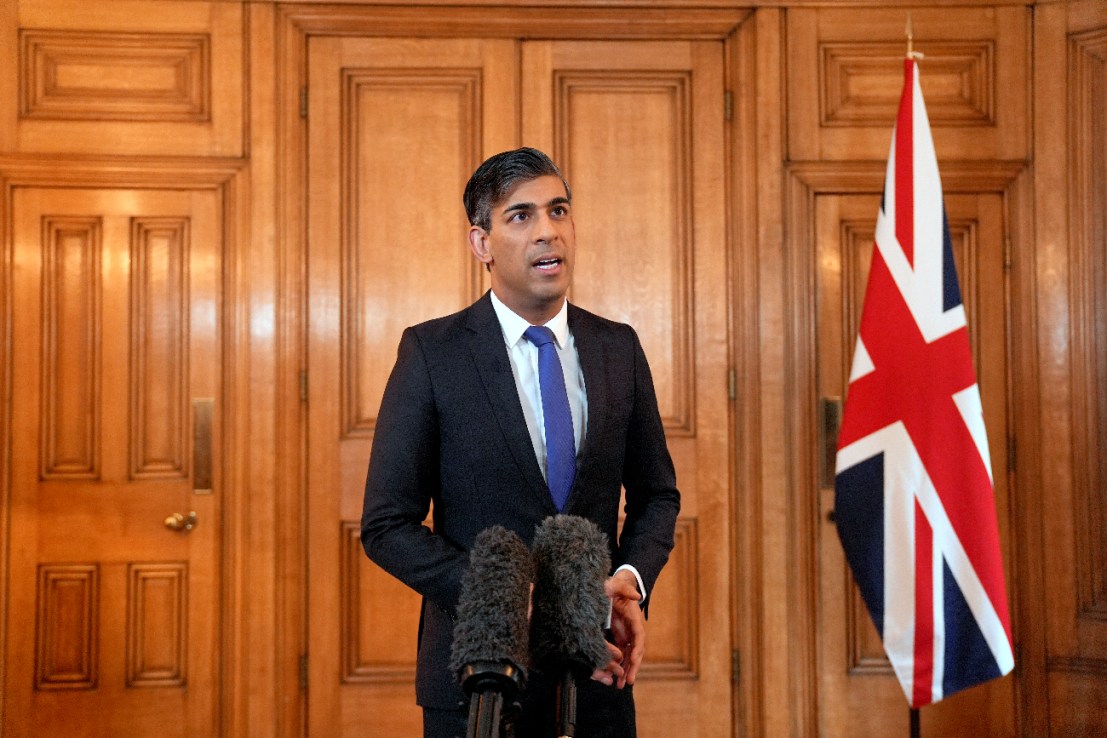Sunak: Britain launched fresh Houthi airstrikes last night – and would ‘not hesitate’ to do it again
Rishi Sunak's announcement comes after Iran-backed Houthi rebels have launched attacks on ships in the red sea in a bid to disrupt international shipping.


Prime Minister Rishi Sunak has announced Britain took part in a new round of airstrikes against Houthi rebels, insisting it was in “self defence”.
In an announcement on Friday morning, the embattled resident of number 10 said the action was done alongside the US.
This comes after Iran-backed Houthi rebels have launched attacks on ships in the Red Sea in a bid to disrupt international shipping.
The group claims it is doing so in a bid to undermine the United States and Israel amid the ongoing war in Gaza.
The Red Sea, which leads to the essential Suez Canal linking the Mediterranean Sea to the Indian Ocean, is one of the world’s busiest shipping routes.
UK and US-backed forces have been patrolling the region targeting rebels to ensure ships can pass freely.
The prime minister said in a statement: “Last night the RAF successfully conducted a fifth set of strikes against Houthi military targets in Yemen alongside the US.
“These strikes were conducted to further degrade the military capabilities of the Houthis and to prevent further attacks on international shipping.
“The strikes were taken in self-defence in the face of an ongoing threat that the Houthis pose.”
Additionally, speaking about the impact of the fresh strikes on already fraught relations with Iran, Sunak said: “We have always said that we will not hesitate to protect British interests abroad and at home.
“There is an ongoing threat that the Houthis pose, 197 attacks since November, all our intelligence indicates that previous sets of strikes have been successful in degrading military capabilities of the Houthis: targeting supply, command and control launch sites for missiles and there is also a risk in inaction that would damage the global economy and further risk our international security.”
This comes after Iran’s influence over the Middle East has been growing ever-stronger, amid the war in Gaza.
It has been financially and politically supporting proxies opposing Israel since the Hamas-launched October 7 attacks, including Hamas, Hezbollah in Lebanon and Syria, the Houthis in Yemen, and elsewhere.
Recently, a number of high-profile Iranian military and political leaders have been killed straining trust and relations further, and bringing the possibility of direct conflict closer.



